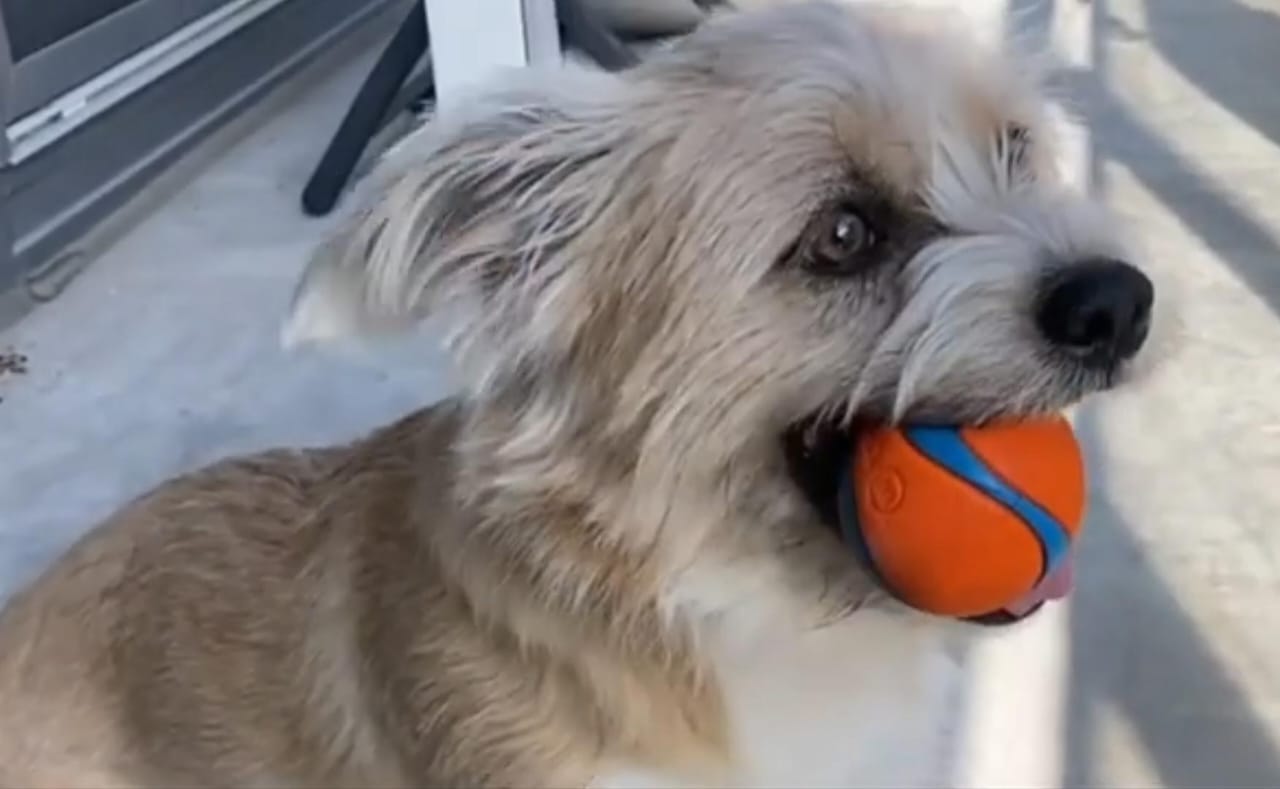The Shorgi is a delightful hybrid dog, combining the Shih Tzu and Pembroke Welsh Corgi to create an adorable, loyal, and energetic companion. These mixed breeds are gaining popularity because of their charming looks and well-rounded personalities. With a teddy bear-like face, expressive eyes, and a fun-loving attitude, the Shorgi has earned a reputation as a perfect family dog, ideal for those living in apartments or homes with spacious yards. Its combination of playfulness and affectionate nature makes it a beloved pet for all types of families.
The Shorgi thrives in an environment where it can receive lots of attention, affection, and exercise. They love being the center of attention and are very sociable, which makes them excellent pets for households that enjoy hosting or socializing. This dog’s devotion to its family is unmatched, and it has an innate ability to bond deeply with its owners, making it a loyal companion throughout its lifespan.
Breed Overview
| Trait | Details |
|---|---|
| Height | 10-12 inches |
| Weight | 12-25 pounds |
| Life Expectancy | 12-15 years |
| Coat Color | Black, brown, white, tan, fawn |
| Coat Type | Medium-length, dense, wavy or straight |
| Personality | Affectionate, playful, loyal |
| Exercise Needs | Moderate |
| Training | Easy to train, eager to please |
| Health Issues | Joint issues, hip dysplasia, eye problems |

Table of Contents
Appearance
The Shorgi inherits the best physical traits of both the Shih Tzu and Pembroke Welsh Corgi. This hybrid breed has a sturdy build, short legs, and a long body, which is characteristic of the Corgi parent. Their medium-length coat can be straight, wavy, or even curly. Depending on the genetic contribution, some Shorgis will have the sleek, silky coat of a Shih Tzu, while others may inherit the thicker, denser coat of a Corgi.
- Size: Shorgis are small to medium-sized dogs, standing between 10 to 12 inches in height and weighing between 12 to 25 pounds. This makes them ideal for both apartment and house living.
- Coat Color: Shorgis come in various colors, including black, brown, white, tan, and fawn. Some may have a bi-colored coat with distinct markings, while others may feature a solid color.
- Tail: The tail of a Shorgi is generally fluffy and may curl over the back. Their expressive eyes, small upturned nose, and adorable features give them a teddy bear-like appearance.
These dogs are a visual blend of their parent breeds, with expressive eyes and floppy or erect ears that further add to their charm.
Temperament
The Shorgi is a fun-loving, energetic, and affectionate dog. They have a friendly, loyal, and playful nature that makes them excellent companions for children and other pets. They are known to be sociable dogs, eagerly forming bonds with family members and even strangers. Their loving nature makes them great pets for anyone looking for a dog that enjoys spending time with the family.
Despite their playful nature, Shorgis can also be territorial and protective. They are highly alert and will often warn their owners about potential dangers, making them good watchdogs. However, this can sometimes lead to aggressive behavior toward strangers if they are not properly socialized. Early socialization is key to ensuring they develop into well-behaved, confident dogs that are not fearful or overly protective.

History
The Shorgi is a designer hybrid breed that originated in the 1990s through the crossbreeding of the Shih Tzu and the Pembroke Welsh Corgi. While the individual parent breeds have rich histories, the Shorgi itself is still a relatively new breed. The Shih Tzu has a long history as a companion dog for Chinese royalty and was bred for its affectionate nature and striking appearance. The Pembroke Welsh Corgi, on the other hand, was originally bred as a herding dog in Wales. It is known for its loyalty and work ethic.
Although the Shorgi is not yet recognized by major kennel clubs like the AKC, it has gained popularity among dog enthusiasts for its blend of the Corgi’s herding skills and the Shih Tzu’s companionship qualities. As more people appreciate the Shorgi’s energetic, playful, and affectionate personality, this hybrid breed continues to grow in demand.
Exercise
The Shorgi is a moderately active dog that requires regular exercise to stay healthy and happy. While they are not as high-energy as some breeds, they still need a daily walk of about 30 to 45 minutes, along with playtime to burn off their energy. Shorgis enjoy outdoor activities, such as running in a dog park, playing fetch, or simply exploring the neighborhood.
Shorgis are also intelligent and will enjoy mentally stimulating activities, such as puzzle toys or training games. Without sufficient exercise and mental stimulation, they may become bored, which can lead to destructive behavior. It is important for owners to establish a consistent exercise routine that meets the dog’s needs, providing both physical and mental challenges.

Training
The Shorgi is a highly intelligent dog and is generally eager to please, making them relatively easy to train. They tend to pick up commands quickly and enjoy the process of learning new things. However, the Shorgi can also inherit a stubborn streak from the Corgi side, making consistency and patience key to successful training.
Positive reinforcement, such as treats, praise, and toys, works best with the Shorgi. Harsh training methods should be avoided, as they may lead to fear-based behavior. Early socialization is also essential for a Shorgi to ensure they grow up to be well-adjusted, confident, and non-aggressive dogs. Shorgis that are properly trained tend to be well-mannered and get along with other pets and children.
Health
The Shorgi is a generally healthy breed but is prone to some common health issues due to its mixed lineage. Hip dysplasia, intervertebral disc disease, and eye problems such as cataracts and progressive retinal atrophy are some of the health conditions that may affect this breed. As a small breed dog, Shorgis are also more susceptible to obesity, which can lead to other health problems like joint issues and heart disease.
To keep a Shorgi healthy, it is important to provide regular veterinary check-ups and maintain a balanced diet. Preventative care, such as keeping an eye on the dog’s weight and exercising regularly, can help minimize the risk of these health problems. It is also crucial to ensure that they receive dental care, as small breeds are prone to dental disease.

Diet
A balanced and nutritious diet is essential for keeping your Shorgi healthy. They have moderate caloric needs and should be fed high-quality dog food that is formulated for small breeds. Shorgis require a diet rich in protein to support their energy levels, as well as healthy fats to maintain a shiny coat and overall vitality.
As a small breed, the Shorgi is also prone to weight gain. Portion control is essential, and owners should avoid free-feeding, as it can lead to obesity. Small meals throughout the day are recommended to maintain stable blood sugar and keep their metabolism active. Additionally, fresh water should always be available to ensure proper hydration.
Rescue Groups
If you’re looking to adopt a Shorgi, several breed-specific rescue groups focus on helping these dogs find loving homes. These organizations often rescue dogs from shelters and provide the necessary medical care and training before placing them with their forever families. Adopting a rescue Shorgi can be a rewarding experience, but it’s important to be prepared for potential challenges, such as separation anxiety or other behavioral issues.
Adoption is also a great way to help a dog in need and provide them with a second chance at happiness. Rescue groups typically evaluate dogs for their temperament and health, so you can be confident that you are adopting a well-vetted dog. If you’re considering adopting a Shorgi, reach out to a local rescue group or shelter to inquire about available dogs.

Can You Adopt a Shorgi?
Adopting a Shorgi can be a great choice if you’re looking for a loyal, affectionate, and energetic dog. However, it’s important to assess your lifestyle and commitment before adopting. Shorgis need regular exercise, mental stimulation, and plenty of socialization. If you are a novice dog owner, you might find their independent streak and occasional territorial behavior challenging.
Before adopting, make sure you can meet the Shorgi’s needs for attention, care, and exercise. If you’re ready to invest time in training and providing a stable environment, a Shorgi will bring years of joy and companionship into your life.
Puppies
Shorgi puppies are incredibly adorable and playful, but they require consistent training and socialization from a young age. Like all puppies, they will need plenty of patience, positive reinforcement, and a steady routine to help them grow into well-behaved adults. Early socialization with other dogs, pets, and people is essential to prevent any behavioral issues.
Shorgi puppies can be a bit headstrong and may show signs of their Corgi’s stubborn streak, so early training will be crucial to ensuring they grow up to be obedient. Socialization classes and puppy playdates can help your Shorgi develop good manners and grow into a friendly, well-adjusted dog.

Costs
The initial cost of a Shorgi puppy can range from $500 to $2,000, depending on factors like breeder reputation, location, and the puppy’s lineage. Additional expenses will include vaccinations, spaying or neutering, and health screenings for common issues like hip dysplasia or eye disease. Be prepared for ongoing costs such as food, grooming, and veterinary care.
Beyond the initial purchase price, consider the long-term expenses associated with owning a Shorgi. Regular grooming, training, and health care are essential to keeping your dog happy and healthy, which can add up over time. However, for many dog lovers, the companionship and love they receive from a Shorgi make these costs worthwhile.
Is a Shorgi the Right Dog for Me?
Before getting a Shorgi, consider your living situation, work schedule, and ability to provide regular care. Shorgis are great for families, active individuals, and apartment dwellers, as long as you can meet their exercise and attention needs. If you are looking for a playful, affectionate, and energetic dog that thrives on companionship and enjoys family activities, the Shorgi could be the perfect choice.
However, if you are new to dog ownership or unable to commit time for training, exercise, and socialization, the Shorgi might not be the best fit. It’s important to ensure that you can meet their needs to maintain a happy, healthy, and well-adjusted pet.
What is a Shorgi Dog?
The Shorgi is a mixed breed dog, a cross between the playful Pembroke Welsh Corgi and the affectionate Shih Tzu. This breed combines the Corgi’s short, sturdy legs and energetic demeanor with the Shih Tzu’s lovable and cuddly personality. Shorgis are typically small to medium-sized dogs that exhibit both playful and loyal traits. They are highly sociable, making them ideal pets for families, couples, or individuals looking for a fun-loving, affectionate companion.
Shorgis tend to be affectionate, loyal, and alert, with a keen sense of loyalty to their family. Due to their intelligent nature, they are also highly trainable and love being involved in family activities. Whether you’re looking for a lap dog to snuggle with or a playful partner for outdoor adventures, the Shorgi is a delightful and adaptable dog that fits a variety of lifestyles.

How Big Will a Shorgi Puppy Get?
A Shorgi puppy, once fully grown, will typically reach a height of 10 to 12 inches at the shoulder. These puppies grow relatively quickly, and while they may appear small as infants, their sturdy, muscular build becomes evident as they mature. The weight of an adult Shorgi usually falls between 12 to 25 pounds, depending on which parent breed they inherit more traits from. If the Shih Tzu genetics are more dominant, the Shorgi may be on the smaller end of the spectrum, while a more Corgi-influenced Shorgi may grow to the larger end.
It is essential to monitor their growth stages to ensure they are developing properly. Shorgis may reach their full adult size by about 12 months of age, though they may continue to fill out and gain muscle mass until they are about 18 months old. Proper nutrition, exercise, and care are important during this growth period to ensure that your Shorgi remains healthy and active.
Does a Shorgi Shed?
Yes, the Shorgi does shed, but the extent of shedding depends on the coat they inherit from their parent breeds. If the Shorgi takes after the Corgi, it may experience heavier shedding, particularly during shedding seasons in the spring and fall. Corgis are known for their dense undercoat, which contributes to significant shedding during these periods. Regular grooming and brushing are important for managing the shedding and keeping the coat healthy.
On the other hand, if the Shorgi inherits the Shih Tzu’s coat, which is typically longer and silkier, shedding will be less frequent but still present. While they may not shed as much as a Corgi, they will still need regular grooming to prevent matting and tangles in their hair. Brushing your Shorgi at least 2 to 3 times a week is essential to reduce shedding and keep their coat looking neat. Additionally, regular baths and ear cleaning help maintain their hygiene and reduce the shedding of loose hair.
Are Corgis Good Dogs?
Corgis are excellent dogs, known for their playful, loyal nature and alertness. Originally bred as herding dogs, they are intelligent and eager to please, which makes them trainable and quick to learn commands. Corgis have a fun-loving attitude and enjoy being active, whether it’s chasing a ball or taking long walks. Their affectionate nature makes them great companions for families and individuals alike, and they often form strong bonds with their owners.
However, Corgis do have some unique traits that potential owners should be aware of. As herding dogs, they can be a bit territorial and may show protective behaviors, especially around their families or possessions. Early socialization is key to ensuring that they become well-adjusted and comfortable around strangers and other pets. Their high energy levels also mean they require regular exercise to stay happy and healthy. A Corgi without enough physical or mental stimulation may develop undesirable behaviors like barking or destructive chewing.
Coton Tzu Dogs: Characteristics, Care Tips & Cute Photos!
The Truth About Chihuahua Shih Tzu Mix: What You Should Know!
How Much Should Corgis Eat a Day? Age, Diet, & Myths Explained
How My Personal Experience with a Corgi Turned My Life Upside Down

